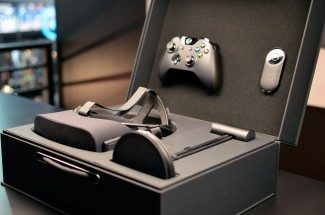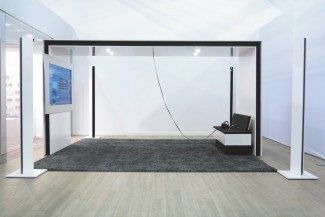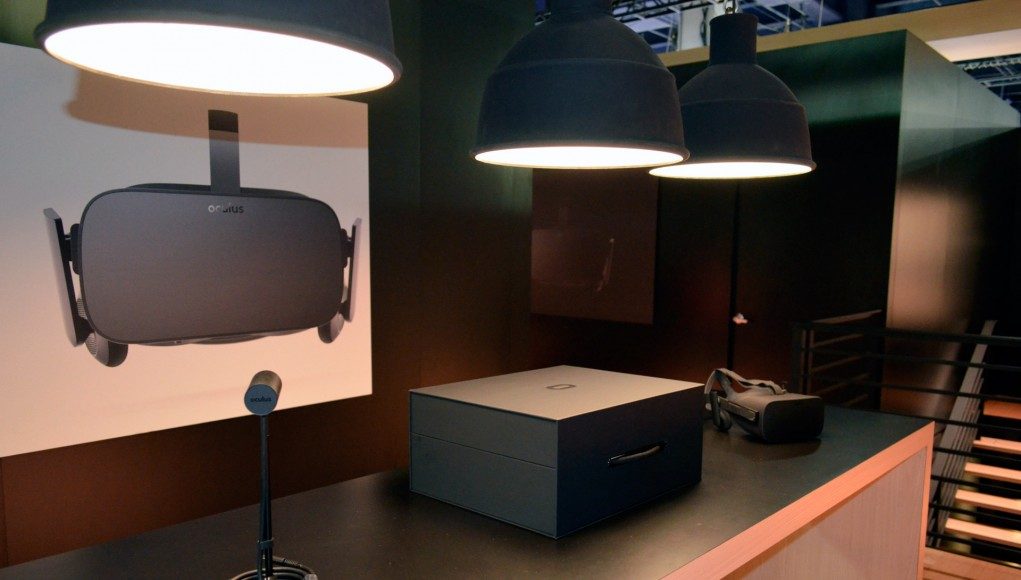Oculus says that getting the Rift into “broad retail around the world” is going to be critical to the success of the Rift headset and VR in general. The company plans to have a retail presence starting in April.
A good old fashioned virtual reality demo is the surest way to not only show people what VR is, but get them to believe in the technology. But this of course poses a major problem to marketing VR systems like the Rift. VR is extremely hard to explain with the written or spoken word, and even photos and video don’t fare much better (though we think this one does a better job than most). This makes it difficult to market to new VR users through traditional mass-media channels.

To tackle this problem, Oculus plans to have the Rift in retail spaces for people to have a place to try the high-end VR headset for the first time. Oculus founder Palmer Luckey confirmed plans for a Rift retail presence last year, and now the company says that we’ll first see it appear starting in April.
“Virtual reality is a very experiential product and experience, it’s something that you really have to see to believe—like you did [to the host]—you’re maybe a little skeptical before, you’ve heard of VR in the past and it hasn’t really worked, but now it does and it works in an incredible way, but you have to see it to really believe it,” Oculus CEO Brendan Iribe told CNBC. “And we feel like once you see it, you’re gonna want it. So getting it into… broad retail around the world is going to be very important to the success of VR and to the success of Oculus and the Rift, and we’re working on that as we speak. We’re going to be in retail starting in April.”
The Oculus Rift became available for pre-order on January 6th, and while a deluge of early-adopter have backordered the headset by four months, Oculus still has a challenge ahead to convince the mainstream that the $600 headset is worth their attention.

There’s no word on which retail partners Oculus will be working with just yet, but in the U.S. one suspect is Best Buy, the country’s largest consumer electronics chain. Samsung, who worked with Oculus on the mobile Gear VR headset, rolled demo headsets out to stores across the country. Given the partnership between the companies, and Samsung’s experience selling inside of Best Buy, it seems a likely route for Oculus to pursue.
The question remains whether or not Oculus will show their still-in-development Touch controllers as part of the retail demo stations. The controllers really complete the VR experience by adding natural interactivity, but the company says the controllers won’t ship until the second half of 2016. Leaving Touch out of the demo would not show the platform’s full potential, but including them could be a let down if consumers have to wait to buy them later in the year.
Competitor HTC has been spreading the word of VR and their HTC Vive system by means of a touring truck which has been making stops at events across the U.S. and beyond. Given the room-scale nature of the Vive system, it’s unclear how readily they’ll be able to convince retailers to give up precious shelf-space for in-store demo stations.







